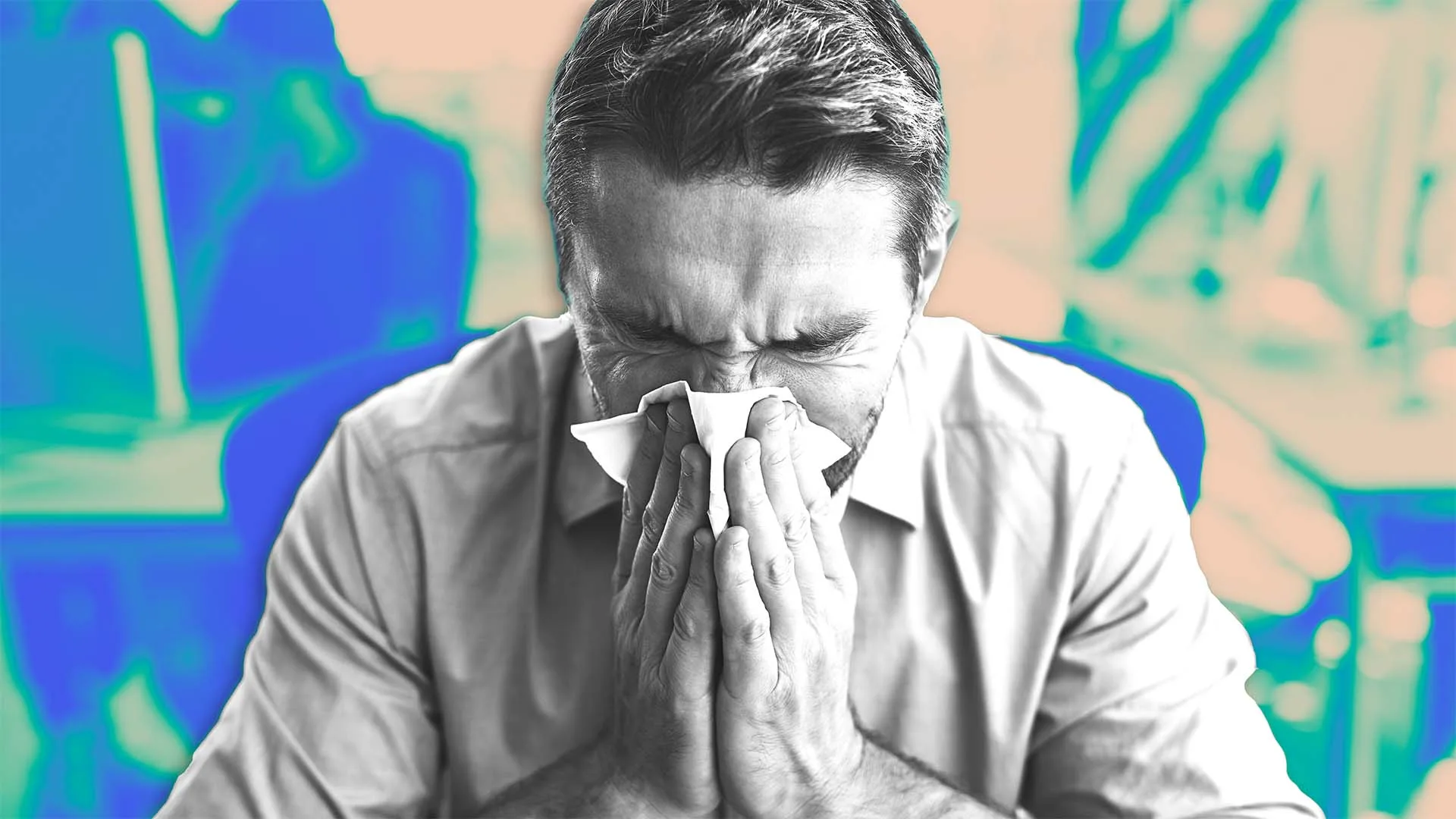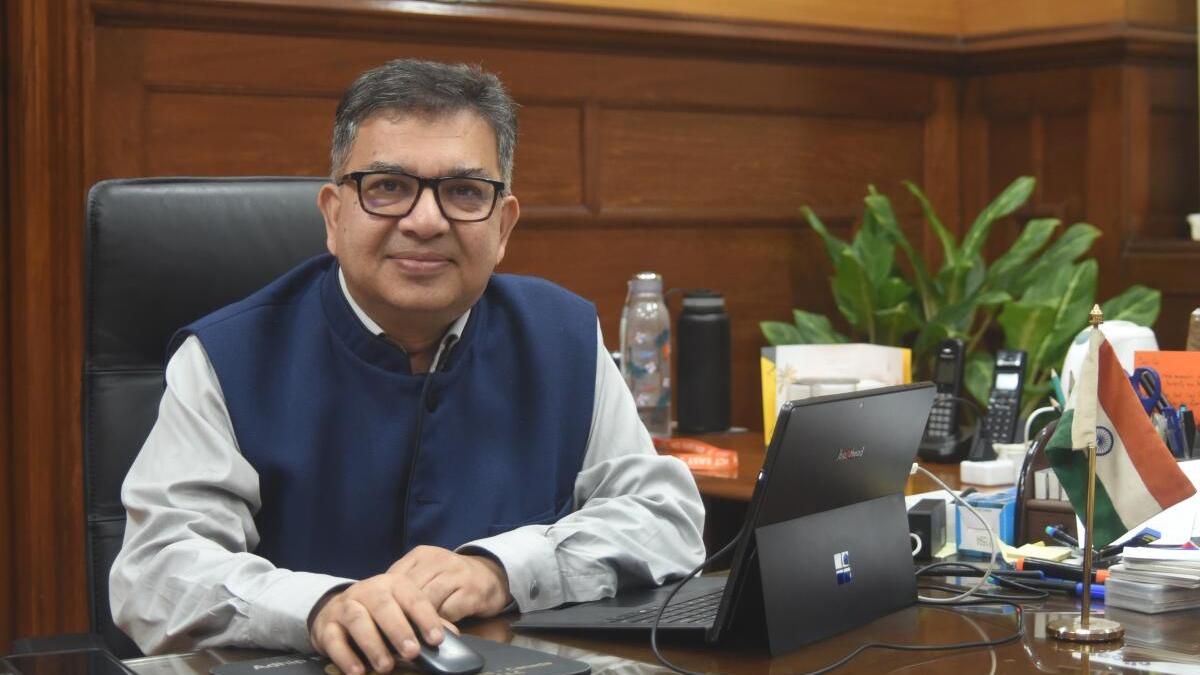
In past decades, unofficial, and usually unacknowledged extra credit was given to employees feeling under the weather who still came in and ground on with the job. But those office Brownie points of yore have now morphed into hard-edged recriminations. According to new survey data, released as the annual cold and flu season looms, people are sick of seeing coworkers coming into the office while ill, and want them to stop, stay home, and get well instead.
The demise of formerly unvoiced respect that business owners and staff felt for colleagues who pushed through an illness to do their jobs was captured in a survey commissioned by Zipfizz, a sugar-free, uncaffeinated energy drink maker. Nearly a third of the 2,000 respondents to the poll conducted by Talker Research said they saw nothing honorable or commendable about someone coming into the office while sick. In fact, a majority of participants didn’t think there was anything to gain by people working while they build a rising mound of used tissues. Just 25 percent of people thought a boss might possibly still be impressed by a worker toiling away between bouts of sneezing and coughing.
Worse still, large numbers of respondents said they’d developed negative feelings for sick colleagues who’ve turned up at their desks hacking away. Around 42 percent of survey participants said their relationship would suffer with a colleague coming in to work sick. That view was even stronger among Gen Z and Millennial participants, 64 percent of whom said they consider that pushing-through-it behavior “selfish.”
The pandemic experience has clearly altered workplace attitudes that previously praised — or at least benignly ignored — people who’d regularly come into the office while ill. Indeed, a 2024 survey found American employees saying they worked an average 84 hours each year while sick, with nearly half saying they usually did that rather than taking time off.
Featured Video
An Inc.com Featured Presentation
Now, by contrast, 57 percent of Zipfizz survey participants said their attitudes and behavior toward illness had changed as a result of pandemic experiences. Consequently, 70 percent of them said they’re more cautious about hygiene and sickness than before, with 86 percent saying they now become concerned about their own health when a coworker trundles into the office under the weather.
“The results of this survey reflect a significant cultural shift where taking care of one’s health is increasingly seen as more important than ‘powering through’ an illness,” said Zipfizz spokesperson Marcela Kanalos in comments accompanying the results. “While some may still feel compelled to show up despite being sick, it’s clear that both personal well-being and social relationships are now top priorities for many, especially among younger generations who value boundaries and respect in social interactions.”
Resentment in the workplace over people coming in sick is all the more significant in it rarely arising from employer coercion. Just 22 percent of currently employed respondents said they felt pressure from managers to work through an illness.
That lack of employer compulsion may be a big factor in why many workers who’ve focused on staying healthy since the pandemic get so irate when a coworker starts coughing and sneezing in the next cubicle.
As numerous threads on social media platform Reddit suggest, there are still a lot of people coming to work sick — and infecting colleagues with resentment — despite the recent global struggle with Covid.
“I absolutely hate when people come to work sick,” said redditor ReneeStone27 in a thread titled, Coworker came to work sick, now I’m sick. “It’s rude and I’m tired of catching whatever they have.”
“I’d suggest you don’t think about ‘how sick you are’ but rather ask yourself ‘am I well enough to be at work’,” advised Polz34 in the “How sick is too sick to call out of work?” thread. “(I)f the answer is no then you shouldn’t be in work.”
“Working while sick is a detriment your health and your coworkers’ health as well,” agreed TheMegatrizzle, adding a mea culpa by way of example. “I remember working while sick and we had to cancel team events and meetings because it spread to everyone and people kept getting sick.”
But in another thread started by an employee who’d fallen ill three times from a colleague coming to work sick, some redditors said employers need do more to prevent those kinds of workplace infections from occurring. A top suggestion from redditors was for businesses to drop requirements for workers to obtain doctors’ notes justifying more than two days of sick leave.
“No one should need a doctor’s note, we are all adults,” said eegrlN. “I’m certainly not going to the doctor for a cold or the flu.”
“Most doctors I worked with despised notes,” added Anaxamenes. “They did it to help their patients, but they thought it was an incredible waste of everyone’s time and money.”
Still other redditors had more direct responses to cases of sick coworkers threatening to spread their ailments to office colleagues.
“Wear a mask,” advised erranttv.
“Insist HE wears a mask, and tell him that he needs to stay FAR the f*** away!” retorted immanut_67, airing the same feelings that Zipfizz’s poll unearthed.
Or, in these days when most workplaces still feature hybrid work arrangements, just ask people feeling lousy to work from home.



